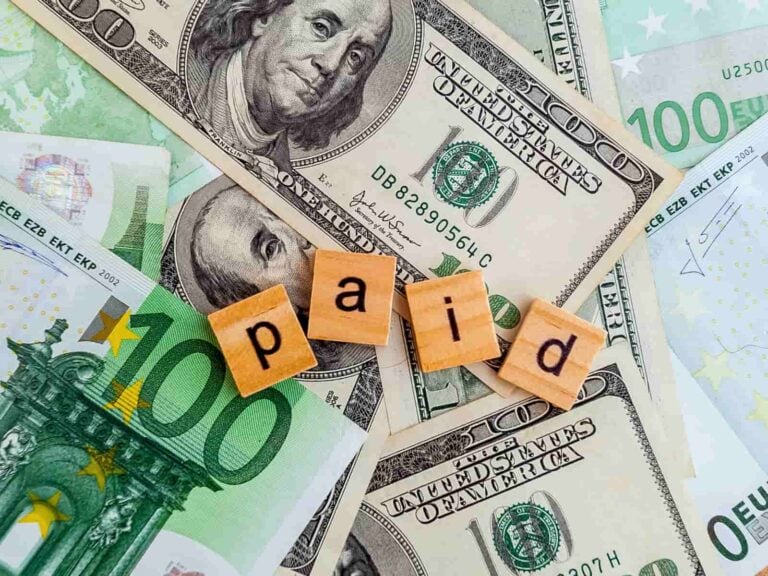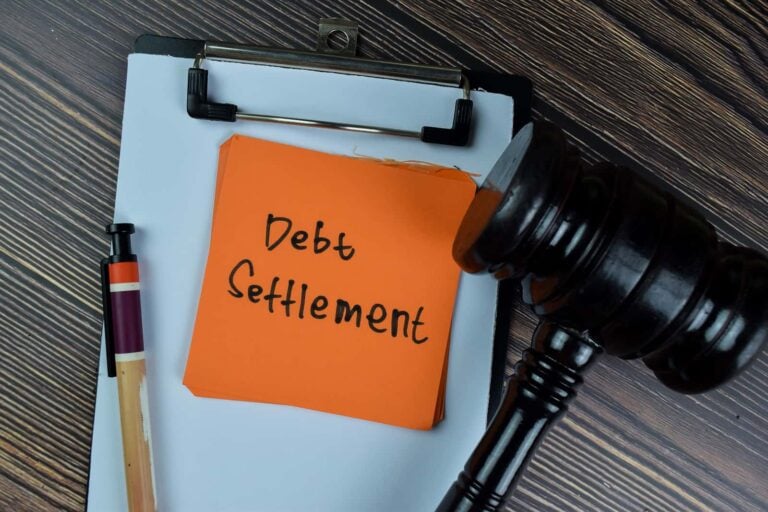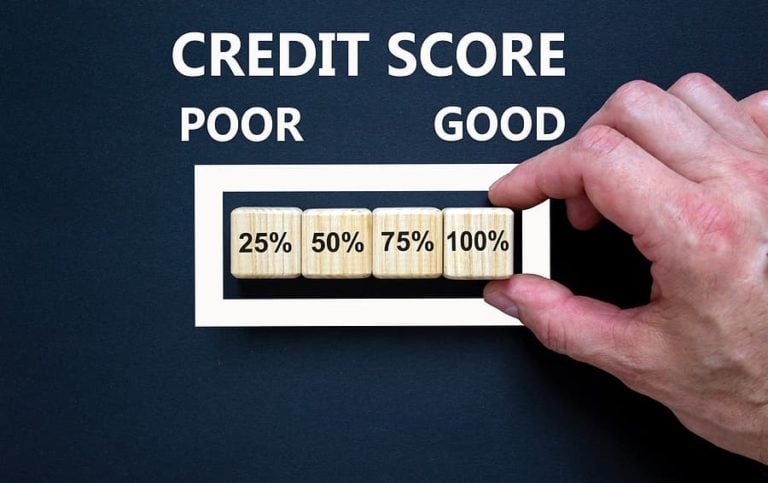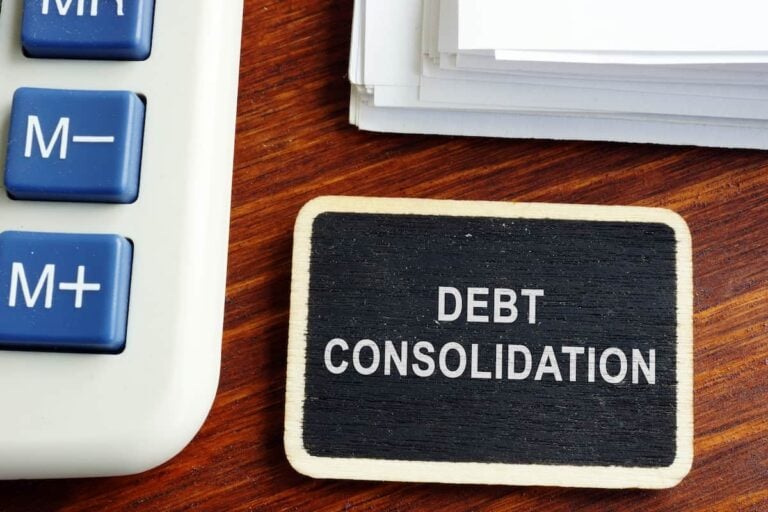Debt settlement occurs when a debtor successfully negotiates a payoff amount for less than the total balance owed on a debt. This lower negotiated amount is agreed to by the creditor or collection agency and must be fully documented in writing.
The settlement is often paid off in one lump sum, although it can also be paid off over time. Although creditors are under no legal obligation to accept debt settlement offers, negotiating and paying lower amounts to settle debts is far more common than many people realize.
The process of debt settlement focuses primarily on unsecured debt, such as high-interest rate credit card debt. Debt settlement companies can help reduce the amount of debt that an individual owes by negotiating with creditors.
If you are considering debt settlement, learn about the fees that debt settlement companies might charge. Contact us here at United Settlement for more information.
How Much Do Debt Settlement Companies Charge?
Debt settlement companies do not charge a fixed price for their services – in other words, don’t expect to be quoted an estimate as you would at the auto mechanic shop when you bring your car in for some repairs. Instead, debt settlement companies charge the bulk of their fees in one of two ways – either as a percentage of the amount of debt initially enrolled, or as a percentage of the amount actually saved through the debt settlement process.
Let’s take a closer look. When fees are assessed as a percentage of the total amount of debt enrolled, the fee is essentially fixed and there is therefore little incentive for performance on the part of the debt settlement company.
In other words, if you were to enroll $50,000 worth of debt, if a fixed percentage fee of 20%-25% is assessed, that would result in settlement fees ranging between $10,000 and $12,500 upon settlement, regardless of the actual amount saved through settlement. This fee structure will almost always be more expensive than the alternative approach that follows.
When fees are assessed as a percentage of the total amount saved through debt settlement, the debt settlement company is incentivized to perform, since the amount it gets paid is directly predicated on performance.
A general rule of thumb for debt settlement is that a successful settlement can lead to savings of 40%-60% of the amount of debt enrolled. So, for example, if $50,000 enrolled debt results in a settlement savings of 50%, or $25,000, and a 20%-25% percentage of this savings is applied, debt settlement fees of $5,000-$6,250 would result.
Debt Settlement
If you are already delinquent on one or more credit card accounts, debt settlement may prove to be an excellent option, as it can result in creditors accepting lower balance payoffs. In a debt settlement scenario, the debtor sends a regular monthly payment into an escrow account managed by the debt settlement company.
Meantime, delinquent credit card accounts continue to accrue interest expense and late fees while causing damage to a credit score and profile. However, creditors become more likely to settle once a debtor has already demonstrated an inability to pay. When an individual has already fallen behind on payments by four or five months, it can actually be an excellent time to engage the services of a debt settlement company.
This is because the creditor still controls the delinquent account but is fully aware that time is moving closer to charge-off status – when a creditor is unlikely to recover anything significant from the delinquent account again. The creditor therefore becomes more willing to accept less than the full balance owed, knowing that a smaller piece of the pie in the form of a negotiated debt settlement is better than no slice of the pie at all.
Debt Settlement Company Fees
When the escrow account reaches a targeted level – and this can take as long as three years, the debt settlement company begins extending settlement offers to creditors – who are under no legal obligation to accept any settlement offers.
However, offers are frequently accepted, settlements often do take place, and significant savings can result – but they must be measured against the fees, tax liabilities and resultant damage to the debtor’s credit profile that results. In fact, when all of these factors are taken into consideration, it can be the case that pursuing debt settlement isn’t a very good idea, after all.
By law, debt settlement companies are prohibited from charging upfront fees. In fact, any debt relief company that guarantees a successful settlement or charges upfront before achieving a successful settlement operates in violation of Federal Trade Commission rules and regulations.
However, a debt settlement company that charges a fixed percentage of the amount saved through settlement is engaging in fair play, and that’s a good place to start. Debt settlement companies will often charge regular monthly fees related to managing the escrow account, as well.
Next, know that the IRS will levy taxes on all settlement savings for amounts exceeding $600 – unless you qualify under the insolvency exemption. If the difference between the amount of your assets and liabilities is negative, this indicates insolvency and there will be no tax liability associated with debt settlement savings. Similarly, any amount of debt settlement savings that is greater than the positive solvency amount will also be tax-exempt.
Is Debt Settlement a Good Idea?
The question ultimately becomes whether pursuing debt settlement is worth it. If you’re already delinquent on your accounts and your credit score has already been damaged, pursuing debt settlement can easily make sense.
You’re likely to save money – and it’s even more favorable from a tax perspective if you are insolvent (or close to it). However, for the individual who has not yet fallen behind on accounts, whose credit score and profile have not already been damaged, debt settlement may not make as much sense.
This is because the settlement process itself will involve ceasing payments on accounts that you will be pursuing settlement on, and this lowers a credit score. Furthermore, if an individual is solvent, a significant tax liability will result, that when combined with the settlement fee, can easily erode more than half of any settlement savings.
Therefore, for solvent individuals who have yet to fall seriously delinquent on unsecured high-interest rate credit card accounts, debt settlement will only make sense when there are higher aggregate levels of debt – at least $50,000 or higher.
Even then, the individual must consider whether the long-term damage to a credit score and profile – accounts marked as “settled” remain on a credit report for seven years – is worth the true net amount saved through debt settlement, which is the debt settlement savings, minus fees, minus taxes.
Contact United Debt Settlement to learn more about debt settlement. Give us a call at (888-574-5454) or fill out our online contact form and get a free savings estimate.
About the Author: Steven Brachman
Steven Brachman is the lead content provider for UnitedSettlement.com. A graduate of the University of Michigan with a B.A. in Economics, Steven spent several years as a registered representative in the securities industry before moving on to equity research and trading. He is also an experienced test-prep professional and admissions consultant to aspiring graduate business school students. In his spare time, Steven enjoys writing, reading, travel, music and fantasy sports.

Gabriel Gorelik paves the way for customer service and operations at United Settlement. He is passionate about numbers and holds a strong belief in helping anyone with their debt. Before United Settlement, Gabriel received his BS in Finance & Economics from Brooklyn College. After graduation, Gabriel went on to build his first financial services company where he managed thousands of accounts for business and consumer clients. He understands the importance of client satisfaction, professionalism, and exceeding expectations.












